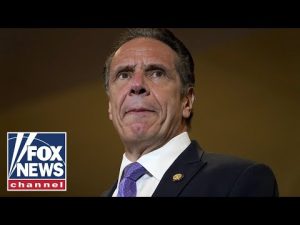In a world where political drama seems never-ending, the saga of John Bolton and classified documents offers yet another plot twist. The FBI, that ever-busy bureau, recently conducted raids on Bolton’s home and office, sparking a fresh round of headlines. According to a senior FBI official, there was a probable cause to believe Bolton had possession of materials detrimental to the national security of the United States. The irony? The Biden administration, not exactly Bolton’s biggest fan, initiated this investigation. Bolton, who spent a good part of his time criticizing the previous administration, might now appreciate what he’s often accused others of—weaponizing law enforcement.
This isn’t a cut-and-dried case tied to Bolton’s infamous 2020 book, yet it has people talking. Instead, it’s linked to a separate incident involving the alleged private emailing of classified material. As the investigation unfolds, the FBI is busy sifting through collected evidence, determining if there’s enough to present to a grand jury. While the wheels of justice turn at a pace slower than watching paint dry, one thing’s certain: there’s plenty to unravel.
Now, switching gears to another realm where accusations and political maneuvering thrive: the world of banking. Conservatives have long expressed concerns over the so-called “debanking” trend. Remember how the Canadian truckers faced financial barriers for their protests? It’s the kind of political maneuvering that conservatives in the United States fear is happening right under their noses. When bank executives say that suggestions from regulators feel more like orders, it’s clear that politics might be playing an unwanted role in banking decisions.
Enter Jim Jordan and his crusade against this financial censorship. The concern is serious—banks denying services not due to shady business practices but because of political disagreements. This is where an executive order from the previous administration comes into play, demanding banks treat businesses fairly, without letting personal politics dictate financial support. Call it a throwback to Operation Choke Point, but banks facing “reputational risks” have raised eyebrows and sparked debates.
But alas, executive orders are as permanent as snow in July. If Congress doesn’t act, the current administration’s push could be short-lived. With Republicans holding a slim majority in Congress, there’s a race against time to enshrine these protections into law. Meanwhile, viewers are left wondering how bankers and politicians will navigate these financial battlegrounds without stepping on each other’s toes—or getting stuck in a quagmire of their own making.
Amidst the chaos, one thing is evident: the political landscape is anything but predictable. From Bolton’s legal woes to banking battles, the stage is set for yet more chapters in this riveting, if sometimes exasperating, political novel we’re living. The courtroom dramas, financial dilemmas, and intrigue seem more lively than any novel one might find on John Bolton’s bookshelf.







